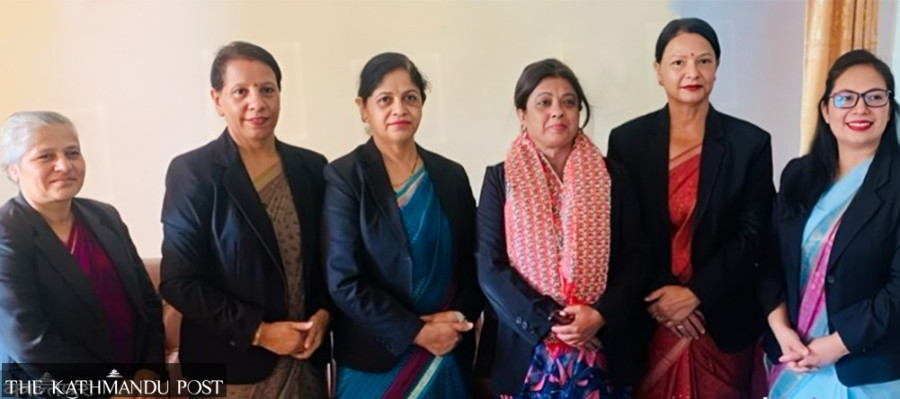National
Women-led courts show exemplary judicial performance
Female justices in key positions lead two courts to high case clearance rates and improved service delivery.
Pratap Bista
The Hetauda Bench of the High Court Patan and the Makawanpur District Court—both currently led by all-woman benches—have demonstrated outstanding judicial performance over the past two years, setting an example of effective and timely justice delivery in Nepal’s evolving federal landscape.
According to court officials, these women-led courts have recorded high case clearance rates, dispelling doubts about the efficiency or capacity of female justices in leadership roles.
The Hetauda Bench, which has jurisdiction over Chitwan and Makawanpur districts, currently has five female judges—Yamuna Bhattarai, Shakuntala Ghimire, Mina Gautam Sedhai, Nirmala Paudel, and Sanumaya Dangol. Despite a sanctioned strength of seven judges, the bench has performed exceptionally well under the leadership of these five women.
In the fiscal year 2024/25, the Hetauda Bench registered 1,727 cases and resolved 1,247—an impressive clearance rate of 72 percent.
Notably, there are no pending cases older than two years. In the previous fiscal year, 1,619 cases were registered and 1,245 were resolved.
Registrar Ramu Sharma of the Hetauda Bench attributes the court’s success to the dedication and discipline of the female judges.
“There has been no delay in justice delivery due to the presence of women judges,” he said. “In fact, this bench is among the best performing in the country.”
Meanwhile, the Makawanpur District Court is also being run entirely by four female judges—Avani Mainali Bhattarai, Geeta Shrestha, Shakuntala Karki, and Purnima Koirala.
According to the court’s information officer, Keshavraj Kaushik, this is the first time the court has had all female judges. “There have been no complaints or concerns about the quality or impartiality of justice delivered by the women-led bench,” he said.
The Makawanpur District Court handled a total of 4,150 cases in the fiscal year 2024/25, including 1,597 carry-over cases and 2,553 new ones. Of these, 2,868 cases—around 69.11 percent—were resolved. Only two cases older than two years remain pending, a sharp drop from 22 such cases in the previous fiscal year.
Judge Avani Mainali Bhattarai said that gender has not affected her ability to perform judicial duties. “Justice has no gender,” she remarked. “Being a woman doesn’t mean we’re emotionally biased or automatically sympathetic to women. Our decisions are based solely on legal merit.”
According to senior advocate Ishwar Dhakal, the performance of both courts proves that women are fully capable of leadership in all sectors, including the judiciary. “The pace and quality of work in these courts speak for themselves,” he said.
Advocate Madan Dahal added that women judges often make female litigants feel more comfortable, particularly in sensitive cases involving gender-based violence or family disputes.
The courts are also notable for the number of women in their administrative staff. Of the 53 employees at the Hetauda Bench, 30 are women—including all five judges. In Makawanpur District Court, 26 of the 60 staff members are women, including chief administrator Roshi Bhandari and assistant administrator Babita Basnet.
The success of these two courts underscores the growing presence and impact of women in Nepal’s judiciary and reaffirms that gender is no barrier to delivering timely and effective justice.




 12.12°C Kathmandu
12.12°C Kathmandu















